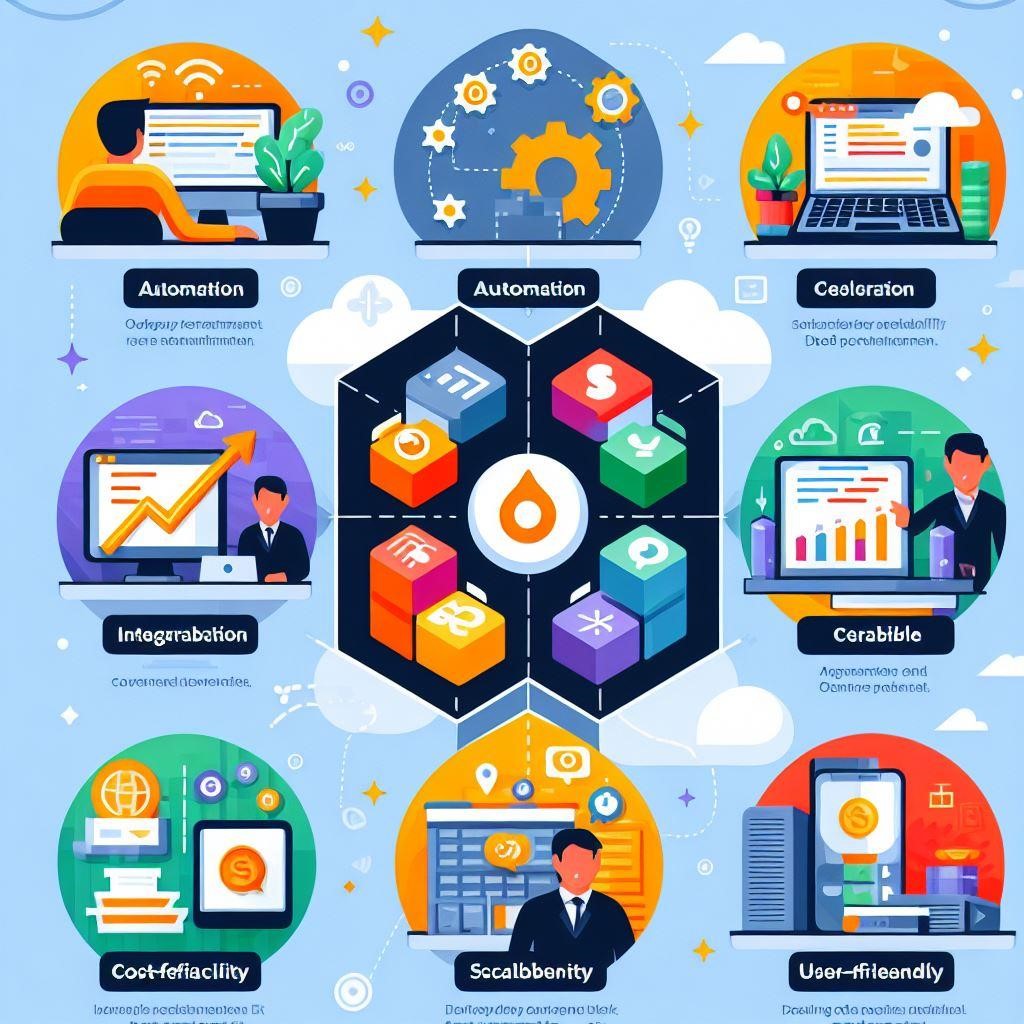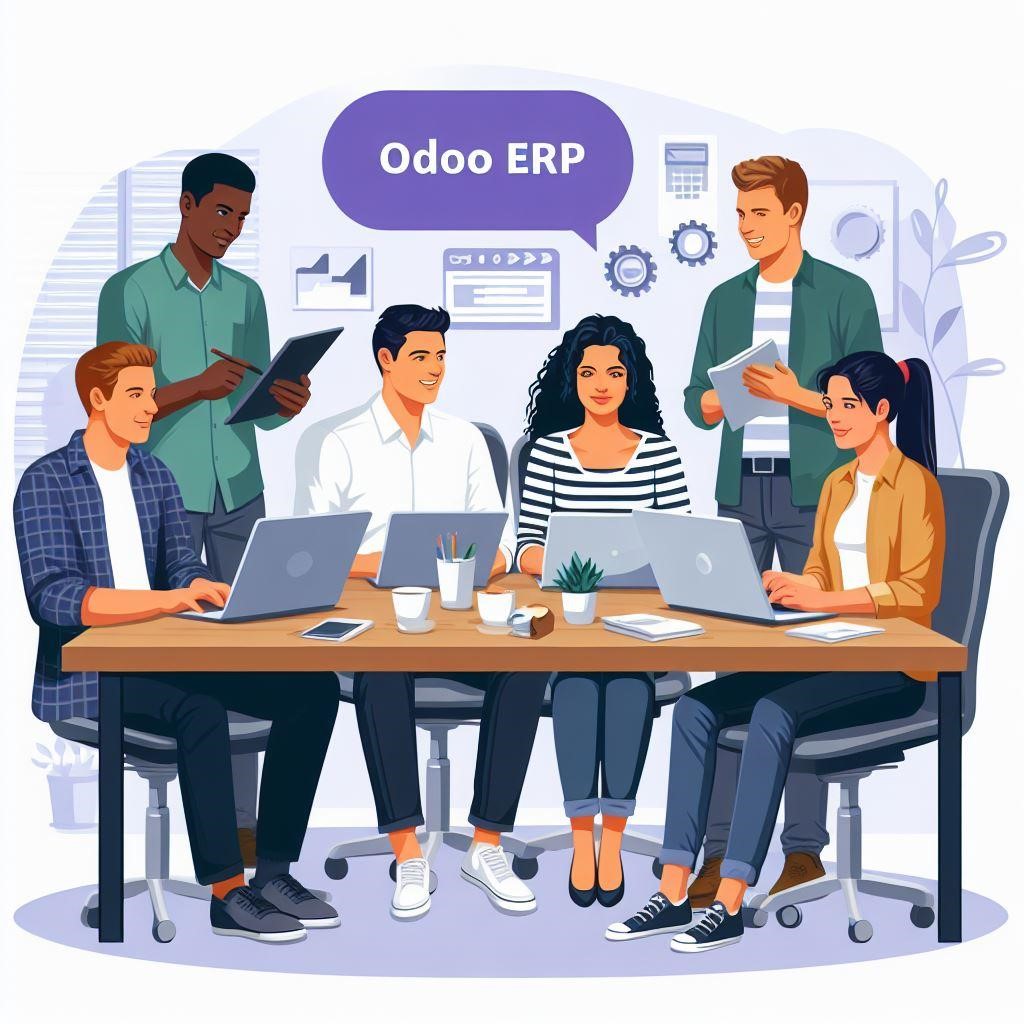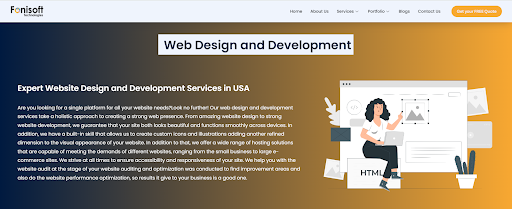Introduction
Due to the high competitiveness and speed with which technology advances, companies are gonna be looking continuously for new ways of improving their secondary processes, productivity and sustainability. One of the most complex issues that has been taking the stage and being widely adopted is the Odoo ERP development. This article appears to focus on the immense complexities of Odoo, addressing fundamentally what the system can deliver and the particular benefits that businesses may derive from its use along with the concomitant chain of problems and issues that can hinder its smooth operation.
Understanding Odoo ERP
Odoo ERP, formerly named OpenERP, represents a fully packed ERP (Enterprise Resource Planning) system that features a range of integrated software solutions for various business operations that help to make the business more effective, efficient and transparent. The module, which includes financials, accountancy, inventory management, customer relationship management (CRM), and human resources (HR) to name a few, is a modular approach, in which businesses can fine tune their ERP systems to their specific needs and grow with the demand of the business.
What makes Odoo ERP stand out is its modular design that enables companies to choose the modules that fit their needs and eliminate redundancies and features of little relevance that are typical in the overloaded software systems. It is this modularity which allows the services to combine with other systems and data providers which eventually will improve the whole operational performance.
Benefits of Odoo ERP Development

Enhanced Efficiency: Odoo ERP collects data in one place and does processing of it using a centralized platform that is shared. This reduces redundancies and simplifies workflows. The result is increased operation efficiency levels by making tasks run seamlessly and smoothly across all departments.
Improved Collaboration: In this regard, Odoo ERP makes available real time data access and tools of collaboration which are integrated into the system, teams can share information, work together and link with each other, regardless of location or time barrier.
Scalability: Modularity of Odoo serves as a kind of a tool which allows companies to upgrade their ERP with time when their businesses develop and expand. New modules that can be easily included without any problem of rewiring. Also, the existing ones may be altered to make the system able with modifications and upgrades with respect to the changing business needs.
Cost-Effective Solution: Like with traditional ERP systems which would entail expensive subscriptions and complicated licensing models, Odoo offers a low cost way of doing it with flexible pricing options. It does not discriminate against organizations of different sizes, allowing even startups and small and medium enterprises to implement it effectively.
Customization: The ERP system Odoo has got another important benefit which is in the form of configurability and customization tools. Through business operators, individualization of Odoo modules can be achieved in such a way that would entirely meet various workflows, business processes, and industry-specific requirements, finally leading to an efficient ERP system.
Unlocking Potential: Odoo ERP Development Strategies
Assessing Business Needs
Prior to starting the Odoo ERP development; which entails planning, examining and re-engineering of existing systems, process and objectives of any business is very vital. During this evaluation process will be identified the inputs where Odoo ERP can add great amount of value and will ensure the ERP implementation to be the providing platform to the organization achievements.
Customization and Integration
Modular architecture of Odoo ensures much extension of flexible customization thus all the requirements of businesses can be satisfied with the ERP system if their business-specific requirements are met. The list is not exhaustive and the customization of workflows, reports, dashboards, and UI is for users to gain flexibility and extend the usability. Moreover, Odoo offer a perfect environment for integration with different third-party applications and software to be used as the main backbone of the business.
User Training and Adoption

The ultimate success question of Odoo ERP would be the degree to which the users adopt and accept it. In conclusion, the successful implementation of a new information system comes with considerable training challenges for businesses. Hence, companies need to invest in well-thought-out training programs and change management strategies aimed at guaranteeing that employees are skilled enough to use the new system. Training should focus technically on more than just direct benefits but also on the showcasing of the advantages and operational proficiency that Odoo ERP imparts to their daily activities and operation.
Data Migration and Quality Assurance
The processing of the data from the archaic systems to Odoo ERP has to be accomplished with appropriate planning and execution. It is crucial to check the migration process and make sure that there is no data loss or accident. Thorough testing procedures and quality control measures like those that detect deviations or faults need to be in place for the immediate resolution of the errors. Data security measures not only allow the data to be such during but also in the process and the post migration too.
Definitely, let’s proceed with the Odoo ERP development strategies and drive into the depths of its complexities and thought-through points that necessitate these implications.
Continuous Support and Maintenance
Besides post-implementation support and maintenance, which is necessary for the system to be functional, these are the phases to check if the system runs properly. It further comprises various updates that solve bugs, and a technical support unit which answers questions about problems that might have occurred. Having my own support team or choosing to work with a company holding an Odoo certificate guarantees my business the ability to resolve issues effectively and quickly and, thus, a fully functional and optimal system.
Data Security and Compliance

Data security is arguably one of the primary concerns essential in the modern world filled with technology. The Odoo ERP system should be created with high-level security means to prevent confidential data from a hacker attack, breakage of data and cyber threats. Such protection measures involve uses encryption technology, access controls, regular security audits, and compliance to laws such as GDPR, HIPAA or PCI DSS contingent with the business’ area of operation and industry.
Performance Optimization
The efficiency of the Odoo ERP system is critical because the system must offer fast response, and its capacity should be scalable, and it should be reliable as well. This englobes the utilization of database queries optimization, caching structures, server configurations tuning and Odoo’s performance boost features. We maintain optimal condition of our systems by frequent monitoring and optimization in order to achieve this. This is, however, possible even during the times of high traffic.
Business Intelligence and Analytics Integration
Use of BI functionalities in ERP Odoo brings comprehensive analysis based on business operations, trends, and productivity measurements. Utilization of BI indicates, dashboards and analytics modules of the Odoo can help businesses owning data driven decision making, finding and eliminating the mistakes and executing the processes in a more effective and productive way.
Mobile Accessibility and Responsiveness

Today, with “mobile computing” ruling the world, it is vital for us to enhance mobile accessibility and responsiveness if we want to have a productive workplace and satisfied customers. Enterprise resource planning should propose mobile-friendly interfaces, responsive design characteristics and in-built mobile apps. This leading edge allows the user to use CRM functionalities from any device, anywhere, and thus continue to stay connected with business operations at all times.
Integration with Emerging Technologies
Greenishing of the upcoming technologies such as AI, ML, IoT and also blockchain can lead to ramping up the Odoo ERP potential in terms of with the value proposition of this ERP program. Replacing human workers with AI-powered automation combined with implementation of predictive analytics (PA), IoT sensors, and blockchain via short or long-term transactions offers new ways to develop new products, to make businesses more efficient, and to get a competitive advantage.
User Feedback and Iterative Improvements
Gaining users’ comments and reviews through which the Odoo ERP system is polished and developed accordingly is of great importance. Leveraging user feedback loops, surveys, and periodic usability checkups reveals user drawbacks, expectations, and the corresponding improvements. To get the ERP system to the right place, it is important to use sophistication development cycles as well as agile methodologies in order to ensure that the system is continuously adjusted according to the customers’ needs and external factors.
Conclusion
As a summary, Odoo ERP version introduces a lot of possibilities for companies to ease up processes, gain customers, and operate with efficiency. Understanding the intricacies of Odoo ERP, capitalizing on its advantages, and implementing strategic development plans that can be suitable for businesses with different needs, companies can ensure their ERP systems operate efficiently, effectively, and in accordance with today’s competitive business climates. More than anything, innovation, continuous improvements and a user-centric design are right underlying principles to help realize all benefits of OdooERP and stay ahead and with the changing digital world.
Unlocking the potential of Odoo ERP development can significantly transform and optimize business operations. By leveraging the flexibility, scalability, and functionality of Odoo ERP, businesses can streamline processes, enhance collaboration, and achieve sustainable growth in today’s competitive landscape.
FAQs (Frequently Asked Questions)
What industries can benefit most from Odoo ERP development?
Odoo ERP is versatile and suitable for a wide range of industries, including manufacturing, retail, healthcare, education, and services.
Is Odoo ERP suitable for small businesses?
Yes, Odoo offers scalable solutions that cater to the needs of small businesses, startups, and enterprises alike.
Can Odoo ERP be accessed remotely?
Yes, Odoo ERP is cloud-based, allowing users to access the system remotely from any location with internet connectivity.
How long does it take to implement Odoo ERP?
The implementation timeline varies depending on the complexity of customization and data migration. On average, it can take several weeks to months for a complete Odoo ERP deployment.
Does Odoo ERP support multi-currency transactions?
Yes, Odoo ERP supports multi-currency transactions, making it suitable for businesses operating in multiple countries or regions.
What ongoing support is available for Odoo ERP users?
Odoo offers comprehensive support services, including updates, maintenance, and user assistance through its global network of partners and community forums.








